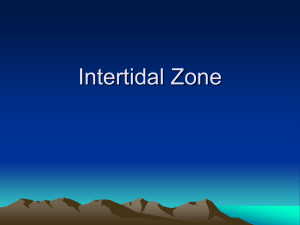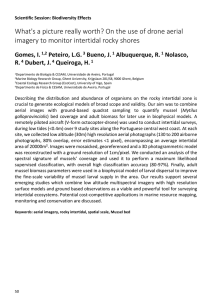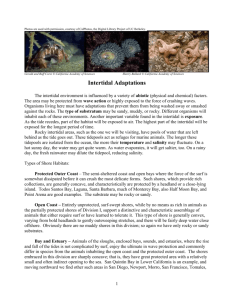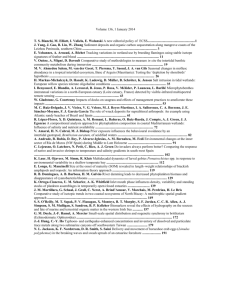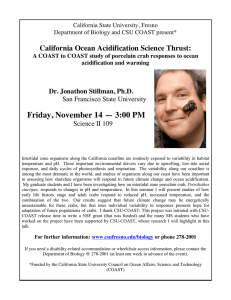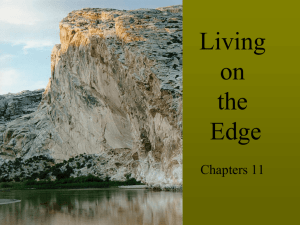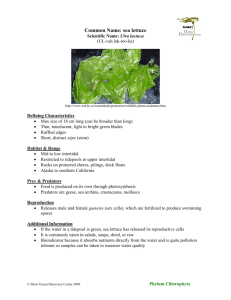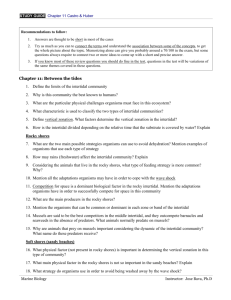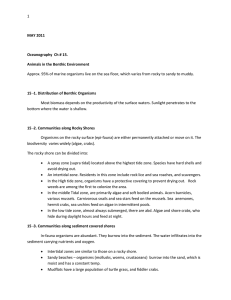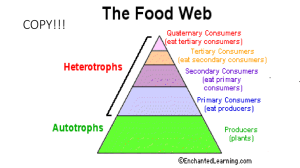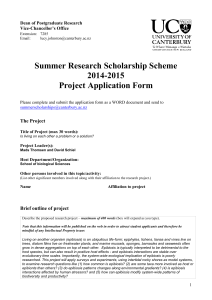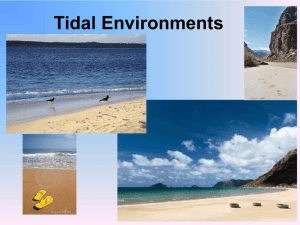Rocky Intertidal Zone
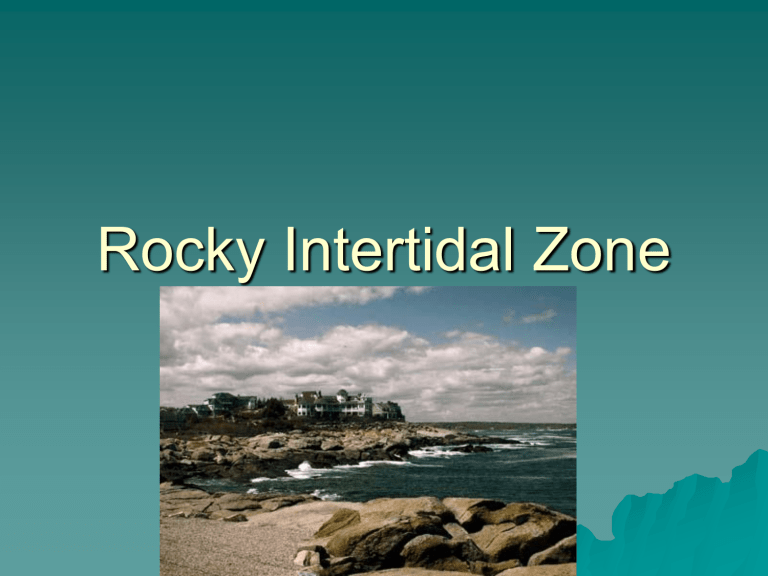
Rocky Intertidal Zone
General Characteristics
Steep coasts without large amounts of sediment
West coast of US
– Active margin
– Uplift
Northeast Coast of US & Canada
– Ice sheets scraped sediment from the shelf
Conditions
Plenty of food
– Shallow water = lots of light
– Nutrients
Detritus
– Brought in by waves & tides
– Most important food source in many communities
Organisms in Rocky Intertidal
Mainly epifauna
Adaptations for attachment:
– Byssal threads
– Holdfasts
– Tube feet
– Cement
Barnacles
Periwinkles
Sea Star
Sea Anemones Lobsters
Sea Urchin Mussels
Palm Seaweed
Rocky Coast Communities
West coast of US has more mature communities
– Less seasonal changes
– Main limiting factor is predation
East coast is less mature
– Seasonal population changes
– Main limiting factor is climate
Competition for Space
Sessile organisms need place to attach
Space is limited
Ways to outcompete other species
– Large # larva
– Loosen competition from rock
– Grow over competitors
Ecological Succession
Vertical Zonation
In rocky intertidal, species not found throughout; rather in a particular range
Distinct bands of organisms at characteristic height in intertidal
Upper limit usu. determined by physical factors
Lower limit determined by biological factors – predation, competition
Keystone Predator
STARFISH FEEDING ON MUSSEL BED
